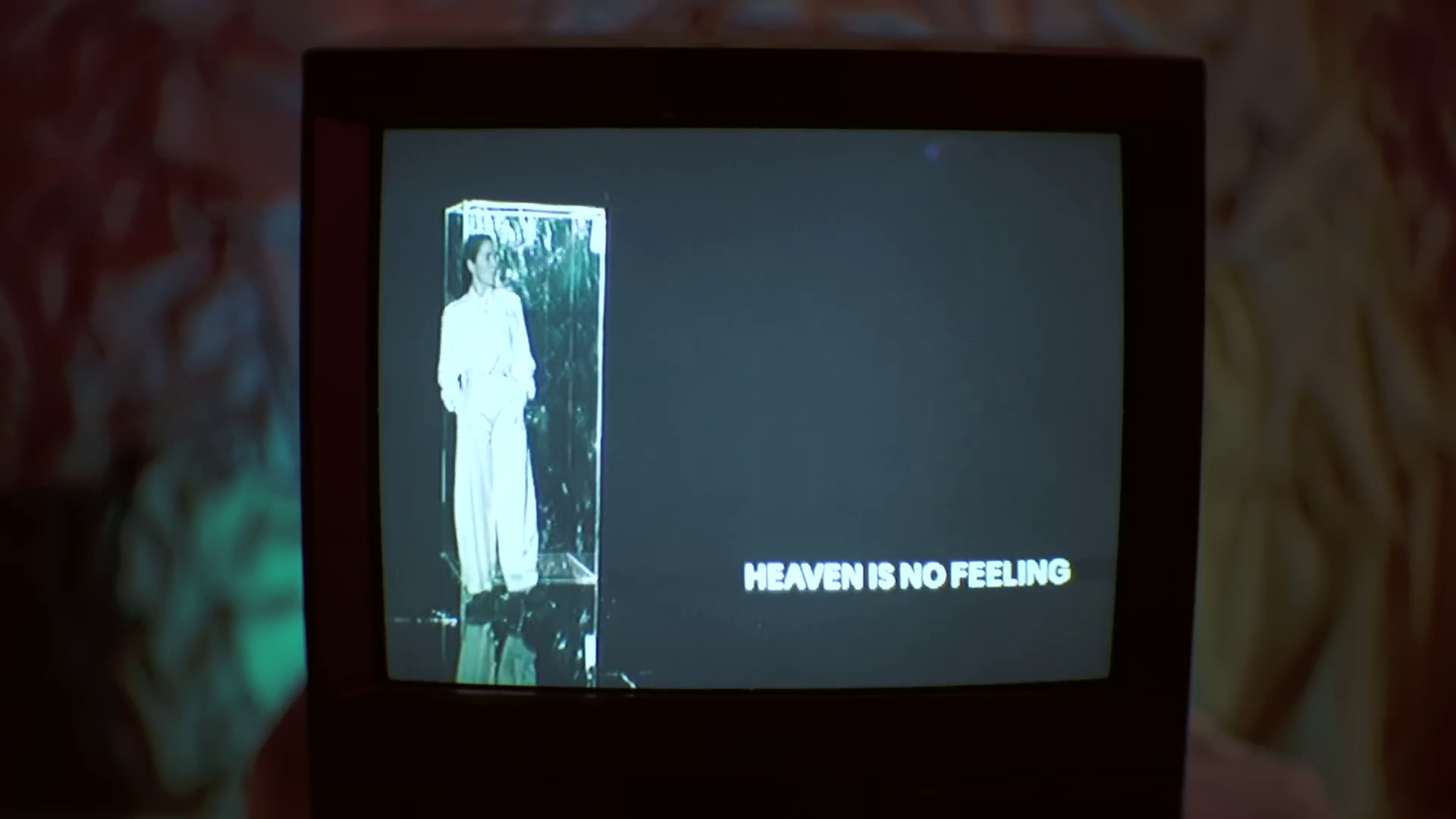'Michelangelo Dying' by Cate Le Bon REVIEW: Terribilità Personified
‘Michelangelo Dying’ by Cate Le Bon REVIEW: Terribilità Personified
Album Cover of Cate Le Bon’s Michelangelo Dying || Photo courtesy of Mexican Summer
Michelangelo, as an artist, had made works that invoked many emotions, such as the triumphant pride of staring at the intricately crafted David or the sheer ever-expanding awe of being underneath the Sistine Chapel. But he is also infamous in the same vein that, as a person, that same ambitious drive to create masterpieces made him a difficult man to deal with, including himself. He was constantly self-critical, obsessively ambitious, and even a prankster to his own patronages. The tales of him vary from digging up corpses as studies to understand every nook and cranny of the human body for his sculptures, to him pettily painting a priest complaining about nudity, to then painting that same priest as a naked donkey-man that got his genitals bitten by a snake.
All these wildly disparate elements are what lead to Michelangelo being referred to in the same vein as the word terribilità, an effect of profoundly powerful and terrible awe.
And for Welsh singer Cate Le Bon, she made that very same terribilità on her own terms. That is why, for me, it's Michelangelo Dying. I see this album as a creation made with that same effect of sublime ambition, but with a sensitivity and vulnerability that is more humbling and distant from Michelangelo’s difficult toxicity.
I have been a fan of Cate Le Bon since 2019’s widely-regarded Reward, a lovingly crafted work of art pop. That intricately produced and disparately beautiful album was the biggest leap into her most artistically fulfilling sonic language that has never left my mind. And it only grew from the synth-y and compellingly groovy fun of the 80s-coded Pompeii. On Le Bon’s seventh studio album, all these previous soundscapes have coalesced and evolved into a purely lush and heartbreakingly beautiful 10 tracks. And not only are all of them produced solely by Le Bon herself, all tracks are rooted in a prominently overarching subtext of openly navigating her own feelings about love and the compounding aches that come alongside it.
To properly explore the rollercoaster of intensities that Le Bon navigates in this album, I will go through the entire album track by track and in chronological order to understand how it coalesces as a whole.
Still from Cate Le Bon’s About Time music video || Photo courtesy of Mexican Summer
The album starts on solid ground with “Jerome,” a slow, reverby, twangy croon about the uncertainties and unreliability of someone you love but are uncertain and indecisive of whether or not to stay or leave.
Then, “Love Unhearsed” already broke me. It’s an 80s pop-flavored bopper whose heart beats with every pulsing drum and unassuming but contemplative riffs. And this track is the most lyrically direct I've ever seen Le Bon take, even down to naming the album itself. This track is a call to action to herself to perform as the ideal woman she has to be for her partner, but then gets the heartwrenchingly cruel twist of the partner themselves requiring none of those performative measures. They didn't need to rehearse being in love, unlike Le Bon, and that truly broke me, especially with that brief breakdown of the sounds akin to a trumpet crying.
Continuing the Pompeii-esque synthwave and heartbeat-like percussions was “Mothers of Riches,” a ballad of yearning underlined by the wailing synths and echoey yearnings of Cat,e completely giving in to love, even folding into it.
Still from Cate Le Bon’s Heaven is No Feeling music video || Photo courtesy of Mexican Summer
We then get to one of the singles released for the album, “Is It Worth It (Happy Birthday)?,” a reverby crooner about the saddest birthday, constantly repeating her own heartache as akin to a recurring monologue to herself. Le Bon was trying to recall and comprehend if the devastation she experienced was so real that she needed to convince herself that her pain was concretized.
Continuing to reflect on the remains of what her relationship was is “Pieces of My Heart,” with jungle-like drums and swooning instrumentals with fragments opining about the remains of a relationship she wants to keep. The last lines of her repeating that "nothing's gonna change" is a double-edged sword that is open-ended to whether it is Le Bon moving on or that she is willing to be stagnant to her sorrows as the drums echo into a void.
Going past the first incredibly strong half comes the start of some of the best stretches of tracks I’ve listened to. And it starts with “About Time,” the third single from the album, and my personal favorite track of the whole album. A pulsating harmony combined with Le Bon's most compelling rhythm and vocal tone, it is both the catchiest and most central track to the album's emotional core. A solidified point where Cate has to be determined for herself on letting go. There is almost no abstraction in what she sings or feels. Cate is defiant and determined to be away from her worst betrayals. The instrumentals themselves reflect that, developing into a subtly stronger and more layered composition. The synths feel louder, and the drums a little more determined to be present. All for Cate to simply speak and say to "collect herself" amongst the "rigid collapse," invoking an image of a tower that falls apart internally, due to a flimsy and stiff construction; a breakup of their own making.
Still from Cate Le Bon’s Is Worth it (Happy Birthday) music video || Photo courtesy of Mexican Summer
That track was an excellent transition to the lead single of the album, “Heaven Is No Feeling,” easily the most entertaining and catchy listen of all the tracks. You can just imagine yourself lightly swaying and dancing to that immediately memorable luscious riff. Lyrically, it contains classic Cate Le Bon fragments that allow the mere act of singing itself as a joyous expression of wanting to love again.
From those brief moments of hope and closure, though, came the crashing back down to wreckage as I listened to “Body as a River.” An oscillating piano pervades a suffering Le Bon spiraling down into another state of lovesickness and pining. There's even a wrenching section around the end with these wailing saxophones backing her sorrows up. Cate simply begs her partner to come to life, desiring a dead relationship to come back to life. The most poetically beautiful way to be pathetic.
Still from Cate Le Bon’s Heaven is No Feeling music video || Photo courtesy of Mexican Summer
A nice surprise then comes up when John Cale of The Velvet Underground is in a duelling harmony with Le Bon on “Ride.” The track consists of a warbled soundscape punctuated by the duo's shared turmoils of relationships with each other. That intentional repetition shown throughout the album actually is recognized by what's my favorite lyric in the whole album: "I lose out to the repetition." It’s a simple but emotionally evocative line that has truly clicked with my own tendencies to repeat my own emotions and frustrations as an assurance to myself.
It all leads to one of the best closing tracks I’ve ever heard on any album in a while, “I Know What's Nice.” Accompanied by a twangy acoustic guitar, this incredibly crushing closer feels like falling into a disparate series of contradictions of emotions. This ranges from falling into an old partner's spell to where the second half truly breaks it down. The guitars sound more drowned and slow; then comes a stack of rattling drums, and Le Bon's reverby echoes are more muddled. All she demands from herself is not to break down again.
But with how the album ebbs and flows about whether Cate Le Bon moves on is a puzzle that hasn't been answered, not even to Le Bon herself. And in the realms of heartbreak, can anyone truly answer that? It’s a terrible and horrifying thing to confront herself, and arguably even ourselves sometimes. That is terribilità. This is Michelangelo Dying.
Michelangelo Dying is now available to stream on all music streaming platforms and for purchase on Bandcamp.























